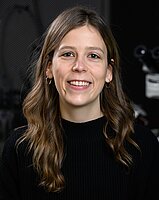Clinical Neurobiology

Spokes person "Translational Neuroscience"
Prof. Dr. rer. nat. Carmen Villmann
Research Focus
Our research focus is on ion channelopathies associated with neuromotor phenotypes in human. Especially we are interested in the underlying pathomechanisms in disturbances of inhibitory signal transduction pathways important in adult spinal cord and brainstem. We use electrophysiological techniques and a variety of cell biology methods as well as protein biochemistry for identification of subcellular trafficking routes of defective receptor proteins.
contact: villmann_c@ukw.de

Prof. Dr. med. Michael Sendtner
Research Focus
Our research focuses on the molecular and cellular actions of neurotrophic factors, in particular Brain-derived neurotrophic factor (BDNF) and Ciliary neurotrophic factor (CNTF) and the cellular and molecular mechanisms how they are involved in modulating synaptic plasticity, axon regeneration and maintenance under physiological conditions during development and in the adult, and in neurodegenerative diseases. Various animal models for motor neuron diseases have been established to develop novel therapeutic strategies for treatment in amyotrophic lateral sclerosis (ALS) and spinal muscular atrophy (SMA), the most common form of neuromuscular disease in children.
contact: sendtner_m@ukw.de

Prof. Dr. rer. nat. Philip Tovote
Research Focus
At the heart of our research is the question of how the mammalian brain creates basic, evolutionary conserved emotions and the corresponding behaviors driven by motor programs. In particular, we are interested in fear and anxiety, defensive brain states that are evoked by threatening stimuli and are characterized by a range of hormonal, behavioral and autonomic adaptations. We use state-of-the-art methodology, such as in vivo electrophysiological recordings and calcium-imaging of defined neuronal subpopulations, optogenetics, cardiac measures and neuroanatomical tracings to gain a more detailed, and mechanistic level of analysis of the neuronal substrates underlying defensive brain states and their corresponding bodily functions. These technologies are applied in and combined with classic and semi-naturalistic behavioral fear and anxiety tests in rodents.
contact: tovote_p@ukw.de
Research focus
Our research is focused on the functions of protein-RNA complexes in neurons. We are particularly interested in ribonucleoproteins that are involved in axonal RNA transport and we study how dysfunction of such processes contributes to motoneuron disorders such as spinal muscular atrophy and amyotrophic lateral sclerosis. To investigate such mechanisms we use a variety of molecular biology and cell culture techniques in combination with high-throughput sequencing approaches.
contact: briese_m@ukw.de
Research focus
Our research focus is on motoneuron diseases - in particular, spinal muscular atrophies. Spinal muscular atrophies are among the most common forms of fatal monogenetic disorders in childhood. In both forms - proximal spinal muscular atrophy (SMA) and spinal muscular atrophy with respiratory distress (SMARD1) - dysregulated RNA processing mechanisms, affected ion channels and altered growth factor signaling seem to play a crucial role causing motoneuron degeneration. We focus on the identification of affected cellular targets by combining cellular biology with high resolution microscopy as well as imaging studies including the relevant mouse models. The discovery of such targets opens the view on further therapeutic strategies, especially in the case of SMARD1.
contact: jablonka_s@ukw.de

Research Focus:
As a postdoctoral researcher in the Defense Circuits Lab (AG Tovote), I am interested in the circuit mechanisms underlying heart-brain communication and how cardiac feedback to the brain, a process termed interoception, influences affective behavioral states. By combining cardiac optogenetics, heart rate and neuronal activity measurements with classic and semi-naturalistic behavioral fear and anxiety tests in rodents we investigate the network mechanisms underlying internal states and their corresponding bodily functions.
contact: rodriguez_s@ukw.de
Our research focus is on inhibitory neurotransmission in humans and animal models, which enter into motor defects. The main focus here is the analysis of the basic mechanisms of the inhibitory signal pathways in the adult spinal cord and brain stem with the involvement of the glycinergic system. The identification of functional and cellular pathomechanisms, functional analyzes of the inhibitory synapse and studies of protein maturation pathways are performed with the help of electrophysiological measurements and a wide range of cell and protein biochemical methods. In further projects, we study the connection between the glycinergic inhibitory system and emotional disfunctions (fear, panic). We are also interested in the establishment of 3D neural matrices as a model system to study neurodegenerative states, or for developing alternative methods to animal experiments.
contact: schaefer_n1@ukw.de








